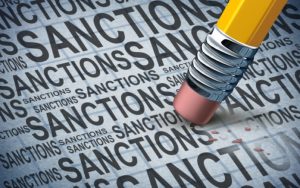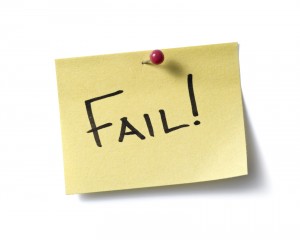The government of Zimbabwe has declared today a public holiday, with a host of activities organized from marches, soccer matches, music gala and national prayers all as a call for the removal of the embargo.
Shockingly, anonymous government sources quoted in the media have confirmed that the event will gobble close to $4million United States Dollars to cater for transport, public address systems, food and regalia. The shocking costs to this event are coming at a time when the country is facing the worst economic crisis since independence characterised by high inflation, low productivity, industrial action mainly in the public service, with the health delivery system in a near collapse because of a 2 months strike by junior doctors who are calling for an adjustment on their incomes.
What is interesting, however, is how the Mnangagwa administration has amplified their propaganda antennae to blame sanctions as an excuse over their failures. Many would recall, that barely 2 months after Mnangagwa assumed office he said the country should stop moaning about sanctions, instead focus on creatively leveraging on available human and natural resources to steer growth and development. In January 2018, Mnangagwa said the sanctions had negatively impacted on development, but it was time the nation stopped whining about this reality and instead turned its attention to factors that it had control over. In his own words, Mnangagwa said: “Takaita masanctions edu atidzorera shure, asi ikozvino hatichafaniri kuramba tichichema namasanctions. Nezvatinazvo, tikabatana tinosimuka. Nyika yedu inosimuka. Matoona kuti tava nesolution in the area of agriculture and the area of food security. Tava nesolution nemasolutions in manufacturing.”
One wonders what has changed, and what happened to the solutions prescribed by the controversial Zimbabwean leader.
But as we debate the sanctions issue, we must not be blinded by the rhetoric of the current administration, the admittance by Mnangagwa that the country must stop moaning about sanctions is a clear declaration that the sanctions have had no much effect to the operations of the economy. Whatever is happening is just but an excuse for this government’s failures to deliver and they know that very well. They equally know what needs to be done for those sanctions to be removed, and it won’t be fake prayers, rented marches, music galas because the intended audience would have nothing of that sort.
Since the assumption of power by Mnangagwa through a military coup, he embarked a short but spirited campaign for re-engagement, selling a dummy that his government was pushing a reformist agenda, and all is now proving to be a pack of lies and deception.
Mnangagwa’s re-engagement campaign has totally collapsed like a deck of cards and he has been left clutching at straws. All has been exposed that Mnangagwa has no appetite for reforms but a continuation of the Mugabe template of leadership. Mnangagwa and team thought they would get away with human rights abuses, stealing elections, corruption, bad governance, but all is now clear for all to see that Zimbabwe is plunging to deeper waters than we ever imagined. Resorting to the Mugabe narrative of sanctions shows a leadership that is frustrated, clueless and out of sorts and now using sanctions as scapegoat for their failures to perform and reform.
The Mothlante commission recommendations have been ignored and lately Clement Nyaletsossi Voule, a UN envoy on the rights to freedom of peaceful assembly and of association, told reporters after a 10-day fact-finding visit that Zimbabweans were questioning the capacity of President Emmerson Mnangagwa’s government to bring about change.
Quite intriguing was also, is the United States of America, through their Ambassador Brian Nichols who exposed the sanctions narrative and dismissed that sanctions are the reason for Zimbabwe’s woes. “Our targeted sanctions are not responsible for Zimbabwe falling tragically short of its potential. The fault lies in the catastrophic mismanagement by those in power and the government’s abuse of its citizens,” Nichols tweeted Thursday. The US Embassy went on to publish what they termed 5 facts about U.S sanctions on Zimbabwe, and they have been challenging the Mnangagwa administration in debunking the sanctions using a hashtag, #ItsnotSanctions on their tweeter handle.
Consequently, the European Union (EU) ambassador to Zimbabwe Timo followed suit and said that the planned solidarity marches would not help change the EU bloc’s position on Zimbabwe.
“Well, SADC has the liberty of stating what it wants, that is their political statement that they came out with recently. When you look at the factual assessment about the facts, because in the SADC communiqué, they were talking about the economic effects and the unfairness of it and from that perspective, we will not be convinced because we were just outlining the limited effect of the economic restrictions that the economic measures would have,” he said.
Our position as the Crisis in Zimbabwe Coalition is clearly espoused in our People Matter campaign, launched on the 18th of September this year in that instead of moaning about sanctions, we urge the Government of Zimbabwe to refocus its energies on an inclusive national reforms program that seeks to broaden and strengthen democratic space and development. We reiterate our call for an inclusive process on the national dialogue that brings all stakeholders together.
We further clarify that in our view the national dialogue that we continue to call for is not predicated on creating another version of a Global Political Agreement or an elite power-sharing deal. We reiterate that our envisaged national dialogue should be a reform process that seeks to safeguard the interest of citizens by restoring the Social Contract between the citizens and those that govern and uphold human security in Zimbabwe.
In this regard, we hold the firm view that the national dialogue process must never be restricted to political parties but should rather bring on board a cross-section of stakeholders that include civic society, labour, women, youth, religious groups, business among other critical stakeholders.
Restricting the dialogue process to political parties will only create a political pact that excludes the concerns of ordinary citizens. We strongly denounce cosmetic approaches to the national dialogue process.
We further call on the Government of Zimbabwe to prove its sincerity by ensuring that Zimbabwe has a conducive environment for holding an inclusive dialogue process in the wake of state-sponsored terror that has increased fear levels amongst citizens. To create a conducive environment and as part of confidence and trust-building in the national dialogue, the government must immediately meet the following conditions:
• End torture, abductions and enforced disappearances, murder, rape and maiming civilians by the military, state security agents and ruling party vigilante groups
• Decriminalize the work of civil society and end the continued persecution and arbitrary arrests of civic society leaders
• Ensure that peace and human security to prevail to allow for all stakeholder to freely express their views on the national dialogue process
• Release of all political prisoners and return Zimbabwe to the rule of law
• The attack on Chapter 12 institutions must seize and independent constitutional bodies allowed to discharge their mandate without undue interference from the state and other conflicted parties
• Promote fair media coverage for all stakeholders and allow divergent views to be shared on all media platforms. Tolerance to divergence is the hallmark of enriching the national dialogue process
We reiterate our position that persecution of human rights defenders and trade unionist in Zimbabwe pose serious human security challenges for ordinary citizens and the global democratic order and restate our commitment to defend the Constitution of Zimbabwe. The Government of Zimbabwe must be guided by the Constitution and a firm commitment made to uphold the Rule of Law and Respect for fundamental human rights.
These are the issues we feel require urgent attention and not wasting resources embarking on a futile exercise like the Anti-sanctions campaign.
In that regard, therefore, and as the marches go on, the debate continues and here we present to you the special edition focusing on sanctions with various authors giving their lucid analysis to understand what’s going on. Enjoy the read
 Jordan Rothman is a partner of The Rothman Law Firm, a full-service New York and New Jersey law firm. He is also the founder of Student Debt Diaries, a website discussing how he paid off his student loans. You can reach Jordan through email at jordan@rothmanlawyer.com.
Jordan Rothman is a partner of The Rothman Law Firm, a full-service New York and New Jersey law firm. He is also the founder of Student Debt Diaries, a website discussing how he paid off his student loans. You can reach Jordan through email at jordan@rothmanlawyer.com.














 Molly Daniel-Springs is the owner of Springs Law Firm, a personal injury and social security disability firm in Charlotte, North Carolina. She is married with two toddlers and enjoys gardening, talking politics, and using sarcasm whenever possible.
Molly Daniel-Springs is the owner of Springs Law Firm, a personal injury and social security disability firm in Charlotte, North Carolina. She is married with two toddlers and enjoys gardening, talking politics, and using sarcasm whenever possible.
